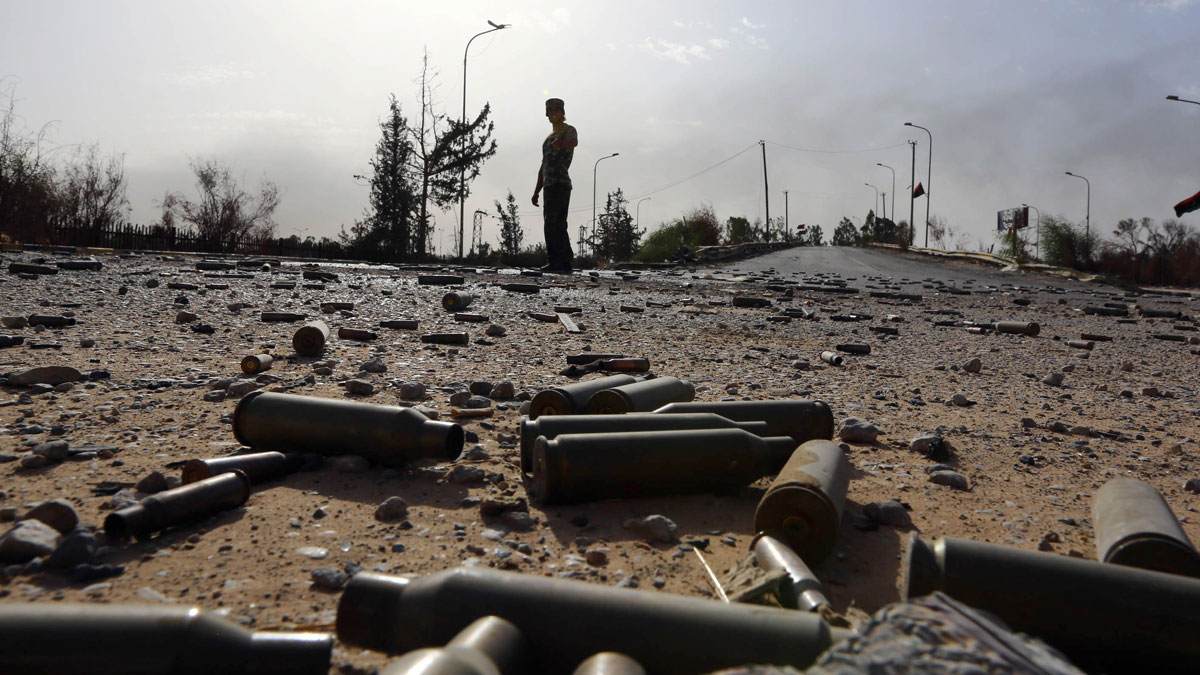David Cameron drafts plans to attack IS in Libya
UK government investigating possible links between Islamic State in Libya and the recent terrorist attacks in Tunisia

A free daily email with the biggest news stories of the day – and the best features from TheWeek.com
You are now subscribed
Your newsletter sign-up was successful
David Cameron is preparing to take on "one of the biggest threats" to international security, by ordering officials to undertake "initial planning" for a new military intervention against Islamic State in Libya, reports say.
"Islamic State is one of the biggest threats our world has faced," the PM said yesterday. "We will only defeat these brutal terrorists if we take action at home, overseas and online and if we unite with countries around the world against this common enemy."
Cameron indicated that as well as any military intervention he would like to work with allies to begin to establish a stable government in Libya, the Press Association reports.
The Week
Escape your echo chamber. Get the facts behind the news, plus analysis from multiple perspectives.

Sign up for The Week's Free Newsletters
From our morning news briefing to a weekly Good News Newsletter, get the best of The Week delivered directly to your inbox.
From our morning news briefing to a weekly Good News Newsletter, get the best of The Week delivered directly to your inbox.
"We should be working and are working with other partners to help the new Libyan government as it gets formed. So that's helping with advice and support and capacity building in their government departments," he said.
"The problem in Libya has been they haven't had a government that has been able to deliver, and that should be our focus. That is why, for instance, we tried helping with training military personnel, so we should go on doing all of these things."
Baroness Anelay, the foreign office minister, said the government is currently "investigating possible links between Islamic State in Libya and the recent terrorist attacks in Tunisia. We are working with Libya's neighbours to enhance their capacity to tackle the threat," she said.
The UK may try to combat IS in Libya by training local troops within the country to combat IS fighters and helping Libyan authorities to plan and organise their security operations, the Daily Telegraph reports, but "air strikes are not believed to form part of the initial Libya planning."
A free daily email with the biggest news stories of the day – and the best features from TheWeek.com
A foreign office spokesman told the paper that the "immediate priority" was to support a "ceasefire and a stable political settlement" in the country.
-
 Switzerland could vote to cap its population
Switzerland could vote to cap its populationUnder the Radar Swiss People’s Party proposes referendum on radical anti-immigration measure to limit residents to 10 million
-
 Political cartoons for February 15
Political cartoons for February 15Cartoons Sunday's political cartoons include political ventriloquism, Europe in the middle, and more
-
 The broken water companies failing England and Wales
The broken water companies failing England and WalesExplainer With rising bills, deteriorating river health and a lack of investment, regulators face an uphill battle to stabilise the industry
-
 Epstein files topple law CEO, roil UK government
Epstein files topple law CEO, roil UK governmentSpeed Read Peter Mandelson, Britain’s former ambassador to the US, is caught up in the scandal
-
 Iran and US prepare to meet after skirmishes
Iran and US prepare to meet after skirmishesSpeed Read The incident comes amid heightened tensions in the Middle East
-
 Israel retrieves final hostage’s body from Gaza
Israel retrieves final hostage’s body from GazaSpeed Read The 24-year-old police officer was killed during the initial Hamas attack
-
 China’s Xi targets top general in growing purge
China’s Xi targets top general in growing purgeSpeed Read Zhang Youxia is being investigated over ‘grave violations’ of the law
-
 Panama and Canada are negotiating over a crucial copper mine
Panama and Canada are negotiating over a crucial copper mineIn the Spotlight Panama is set to make a final decision on the mine this summer
-
 Why Greenland’s natural resources are nearly impossible to mine
Why Greenland’s natural resources are nearly impossible to mineThe Explainer The country’s natural landscape makes the task extremely difficult
-
 Iran cuts internet as protests escalate
Iran cuts internet as protests escalateSpeed Reada Government buildings across the country have been set on fire
-
 US nabs ‘shadow’ tanker claimed by Russia
US nabs ‘shadow’ tanker claimed by RussiaSpeed Read The ship was one of two vessels seized by the US military